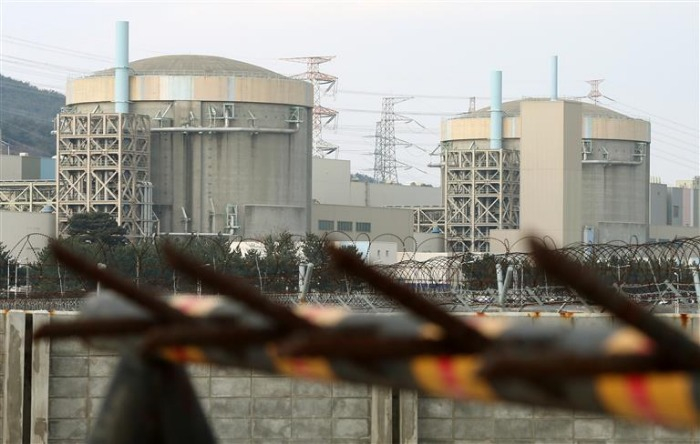Energy
S.Korea to raise nuclear power to one third of energy supply
The target exceeds the OECD nuclear development committee's guidance
By Aug 31, 2022 (Gmt+09:00)
1
Min read
Most Read
LG Chem to sell water filter business to Glenwood PE for $692 million


Kyobo Life poised to buy Japan’s SBI Group-owned savings bank


KT&G eyes overseas M&A after rejecting activist fund's offer


StockX in merger talks with Naver’s online reseller Kream


Mirae Asset to be named Korea Post’s core real estate fund operator



South Korea plans to increase its proportion of nuclear power to 33% of the country’s energy generation by 2030, while slashing its proportion of renewables, a government advisory committee said on Tuesday.
The target for nuclear energy supply is sharply higher than the guidance issued by the Nuclear Development Committee (NDC) last November. By contrast, the target proportion of renewables is slightly lower than the OECD body's guidance.
The energy policy advisory group under South Korea's Ministry of Trade, Industry and Energy revealed the country's plan to generate 32.8% of its electricity supply from nuclear power, above the NDC's guidance of 23.9%, by 2030.
As part of the plan proposed by the 113-member committee, the country will extend the service life of the existing 12 nuclear power plants, while building six new reactors.
By comparison, renewables such as solar and wind power will account for 21.2% of South Korea's 2030 energy supply, just below NDC's proposal of 21.8%.
As for fossil fuels, South Korea will shut down the existing 26 coal power plants that generate an aggregate 13.7 gigawatts (GW) of energy.
As the coal-fired plants are near the end of their service life of 30 years or longer, they will be replaced with liquefied natural gas (LNG) plants. Additionally, South Korea will build five new LNG plants to generate 4.3 GW of electricity.
Electricity Generation by Energy Source for 2030
Unit: %
Graphics by Jerry Lee
Source: MOTIE
The NDC is an intergovernmental agency comprised of some 30 member countries, including South Korea.
President Yoon Suk-yeol, who took office in May this year, pledged to rescind the previous government's nuclear phase-out policy and increase dependence on nuclear energy to achieve its carbon-free goals.
South Korea’s energy demand is forecast as high as 117.3 GW by 2036, according to the advisory committee, assuming that its electricity demand grows at an average of 1.4% per year.
Write to Ji-Hoon Lee and So-Hyeon Kim at lizi@hankyung.com
Yeonhee Kim edited this article.
More to Read
-

-

-
 EnergyS.Korea to bid for Saudi Arabia's $10 bn nuclear plant order
EnergyS.Korea to bid for Saudi Arabia's $10 bn nuclear plant orderMay 31, 2022 (Gmt+09:00)
4 Min read -
 Business & PoliticsKorea’s Yoon govt to raise nuclear power to 34% of energy source
Business & PoliticsKorea’s Yoon govt to raise nuclear power to 34% of energy sourceApr 21, 2022 (Gmt+09:00)
3 Min read -

Comment 0
LOG IN


